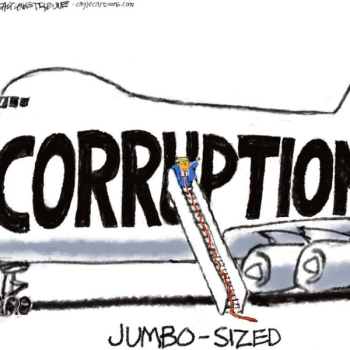What is public theology?
PT 1001
What is public theology? Tertullian (c.160-c.225) answers rhetorically with another question: “What has Athens to do with Jerusalem? Or, the Academy with the Church?” (Tertullian, vii). I answer: lots! Our gracious God gifted Jerusalem with the gospel of new creation through Jesus Christ. God also gifted Athens with a cultivation of the mind that could benefit all pilgrims seeking truth. Today’s public theologian walks with one foot in Jerusalem and the other in Athens. 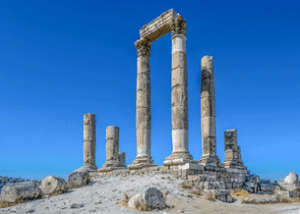
There is a new kid on the block: Public Theology. {For resources on public theology, click here.} We are already familiar with systematic theology and apologetic theology. Systematic theology is faith seeking understanding (fides quaerens intellectum) within the academy for the Church. Apologetic Theology addresses the world outside the Church, to be sure; yet, it’s rhetorical task is to persuade. What does public theology add? Public theology reflects and ministers with and for the world beyond the church doors (Peters 2018). Ministering to and with the world requires the public theologian to be an activist, vigorously campaigning to influence political or social or cultural change.
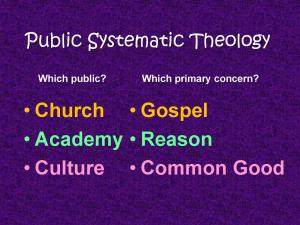 University of Chicago’s David Tracy reminds us that the theologian speaks “to and from three distinct publics: academy, church, and the general culture” (Tracy 1984, 230).
University of Chicago’s David Tracy reminds us that the theologian speaks “to and from three distinct publics: academy, church, and the general culture” (Tracy 1984, 230).
Again, what is public theology? Try on for size this summary definition: Public theology is conceived in the church, critically reasoned in the academy, and meshed with the world for the sake of the global common good. The five tasks of public theology include the pastoral, apologetic, scientific, political, and prophetic. Though conceived in Jerusalem and reflected upon in Athens, public theology clarifies the world’s discourse and constructs a worldview in which all things are meaningfully oriented to the God of grace.
If you’d like more resources on Public Theology, click here.
From Babel to Discourse Clarification
What we call “the world today” sounds like the Tower of Babel. “Therefore it was called Babel, because there the Lord confused the language of all the earth” (Genesis 11:10). Whether it is God or another force that is confusing public discourse today, we ask: could the public theologian make a positive contribution?
Both outside and inside our church doors we are engulfed by a cataract of web-think, Twitter rants, disinformation, terrorist recruitment, cyberdemocracy and eGovernment. Disinformation is indistinguishable from information. Facts get distorted and stretched and turned inside out. It seems that no coherent worldview can navigate the unruly seas churned up by this deluge of disorganized overcommunication. Can the public theologian pilot us with discourse clarification and worldview construction? (Peters, Public Theology 2021).

Even if each of us is dependent on somebody else’s ISP (Internet Service Provider), today’s public theologian has an opportunity to connect, browse, engage, and speak. If this speaking takes the form of discourse clarification—not discourse denunciation, demonization, or damnation but rather clarification—the theologian can provide intelligibility that the web-babel so badly needs and could benefit from. A critically thinking theologian with a charitable heart can help all of us filter fact from fiction, science from pseudo-science, communication from surveillance, information from conspiracy, reliable data from market manipulation, and truth from falsity.

Like the prophets of ancient Israel, today’s public theologian can warn the world that it is preparing its own doom through unbridled natural resource extraction, overfishing, overgrowing in agriculture and overproducing in industry, overpopulating, overexpelling of pollutants and CO2, and over-justifying non-action to prevent global warming, climate change, pandemic disease, and economic injustice. Discourse clarification could make transparent the self-justifications and lies and hypocrisies that stand in the way of cultivating a just, sustainable, participatory, and planetary society.
To carry out public discourse clarification, I recommend that our public theologians give special attention to natural science, Athens’ gift to civilization. Why? Because to date evidence-based reasoning provides a near gold standard of truth. Even though our scientized worldview is strictly partial—falling short of explaining human consciousness or valuing or flourishing—science still provides all of us with a standard of honesty that could exorcise many demons of untruth.
There is more. Critical theological reasoning should, on occasion, be turned back on science itself. Discourse clarification applies to the rhetoric of scientists as well as pseudo-scientists and anti-scientists.
Worldview Construction
This leads directly to worldview construction, the conceptual modeling of reality that incorporates a theology of nature. By worldview construction I invoke the task of the science of theology, as St. Thomas Aquinas called it, to construct a picture of the whole of reality within which everything relates to the one gracious God of creation and redemption. What we learn about nature through science should find a place in this worldview. A theology of nature should be built right into public theology.
The public theologian has an opportunity if not an obligation to select from public twaddle those materials that can be built into a constructed worldview, a worldview wherein both the cosmos and the individual human soul can be perceived in gracious harmony. This worldview should include a theology of nature that vividly portrays our intimate relationship with the God of creation and transformation. This means, among other things, making peace with science, as we can see in the public theology of Noreen Herzfeld.
The tiresome battles over evolution that pit a so-called biblical view of creation against a well-tested scientific theory need a cease fire, replaced by a treaty of coexistence. The repeated mantra by materialists that religion causes all human violence while only a scientized society can enjoy world peace needs to be retuned by a reality-check. The false claim that atheists have a patent on science needs adjudication so that science can be seen for what it is, namely, a prized form of reasoning licensed not only by materialists but also by devout Christians, Muslims, Hindus, and Buddhists.

One caution. A scientifically constructed worldview could easily include a Trojan Horse in the form of modern Western knowledge domination. This risk is especially acute in the African situation, where the benefits of science are coveted but European imperialism is dreaded. “When we advocate for the sciences in Africa,” warns Danie Veldsman at the University of Pretoria, “we will have to do so with open eyes and hearts, seeing both the value of engaging with the sciences and the problematic implications and entrenched dangers of Western models of science and rationality that make unfounded claims to be universally valid” (Veldsman 2020, 178). Worldview construction on the part of the African public theologian must be built on the gospel revealed in Jerusalem as the foundation, to be sure. On this foundation, an African superstructure should include windows open to nature as revealed by today’s scientific Athens.
This African example verifies a point made by the Editor-in-Chief of the International Journal of Public Theology, Clive Pearson at Australia’s Charles Sturt University: “The public space, issues and hopes around the globe are not the same: nor is there a blind uniformity of expectation within the ranks of those who whose work originated in the countries where a public theology first appeared” (Pearson 2019, 383).
One more point regarding worldview construction. I recommend a theology of nature, not a natural theology. A natural theology would attempt to demonstrate divine traits by appeal to science. This is not my recommended method. Rather, a theology of nature is informed by science while relying upon special revelation disclosed in Scripture and amplified by tradition, reason, and experience. A theology of nature, according to Ian Barbour in 1966, “must take the findings of science into account when it considers the relation of God and [humanity] to nature, even though it derives its fundamental ideas elsewhere” (Barbour 1966, 415; Robert John Russell). The contribution of Athens is measured by what has been revealed in Jerusalem.
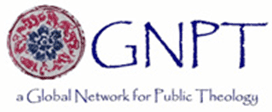
Conclusion
What is public theology? “Public Theology,” according to two leading public theologians, Katie Day and Sebastian Kim, “is thus theologically informed public discourse about public issues, addressed to the church, synagogue, mosque, temple or other religious body, as well as the larger public or publics, argued in ways that can be evaluated and judged by publicly available warrants and criteria” (Day 2017, 4).
I add activism: vigorous campaigning to bring about political, social, or cultural change. Here is my way to put it: Public theology is conceived in the church, critically reasoned in the academy, and offered to the world for the sake of the global common good.
—-
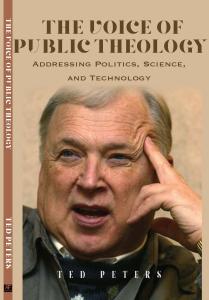
Ted Peters is a pastor, professor, and author of both fiction and nonfiction. Visit: TedsTimelyTake.com.
Ted is emeritus professor of systematic theology and ethics at Pacific Lutheran Theological Seminary and the Graduate Theological Union in Berkeley, California. He co-edits the journal, Theology and Science at the Center for Theology and the Natural Sciences. His fictional thrillers feature an inner-city pastor, Leona Foxx, who courageously challenges the structures of political domination buttressed by the latest in science and technology.
Some Resources for Public Theology
Public Theology with Ted Peters (Master Page)
Books on Public Systematic Theology (website)
The Public Theologian as Ecumenical & Ecumenic Pluralist
The Public Theology of Rudolf von Sinner
The Public Theology of Katie Day
The Public Theology of Binoy Jacob
The Public Theology of Robert Benne
The Public Theology of Paul Chung
The Drumbeat African Public Theology of Mwaambi G Mbûûi
The Public Theology of Valerie Miles-Tribble
The Public Theology of Kang Phee Seng
The Public Theology of Jennifer Hockenbery
Karen Bloomquist: Another Worldview Must Be Enacted Today
Global Network for Public Theology (GNPT)
Ebo Lectures in Theology and Public Life
Center for Theology and Public Issues, University of Otago
International Journal of Public Theology
Works Cited
Barbour, Ian. 1966. Issues in Science and Religion. New York: Prentice Hall and Harper.
Day, Katie and Sebastian Kim. 2017. “Introduction.” In A Companion to Public Theology, by eds., Katie Day and Sebastain Kim, 1-21. Leiden and Boston: Brill.
Kim, Sebastian. 2011. Theology in the Public Sphere. London: SCM Press.
Pearson, Clive. 2019. “Editorial: Stretching Definiitions.” International Journal of Public Theology 13:4 383-386 DOI: https:doi.org/10.1163/15697320-12341596.
Peters, Ted. 2021. “Public Theology.” Theology and Science 19:1 1-4; DOI.org/10.1080/14746700.2020.1869672.
Peters, Ted. 2018. “Public Theology: Its Pastoral, Apologetic, Scientific, Politial, and Prophetic Tasks.” International Journal of Public Theology 12:2 153-177; https://brill.com/abstract/journals/ijpt/12/1/ijpt.12.issue-1.xml.
Tertullian. 200. De Prescriptione Haereticorum. New Advent: https://www.newadvent.org/fathers/0311.htm.
Tracy, David. 1984. “The Role of Theology in Public Life: Some Reflections.” Word and World 4:3 230-239.
Veldsman, Danie. 2020. “Science.” In African Public Theology, by Diaon A Forster, and H Jurgens Hendriks, eds J Sunday Bobai Agang, 175-188. Carlisle UK: Langham Publishing.








